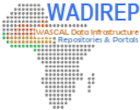This study analyses the climate change discourses and political dynamics in south-western Burkina Faso from three empirical entry points: (a) the production of the National Adaptation Programmes of Action; (b) climate change discourses in the Ioba province; and (c) the role of the public media. Climate change is not a popular discourse in Burkina Faso and seems limited to the national and international levels. Farmers in the Ioba province have experienced environmental degradation and changes in precipitation patterns but have not linked these to climate change, except for extreme
events. Local discourses mostly focus on deforestation and express disappointment in the degree of support that the government and non-governmental organizations (NGOs) offer to producers of food crops. External support is characterized by a good knowledge base of climate change among government officials and NGO staff but also insufficient funds, a lack of coordination, shifting donor interest in development themes and little responsiveness to farmers’ concerns and needs, leading to a lack of political interest. Farmers’ low levels of understanding of elections, voting power and
political accountability have resulted in little political representation of their interests. Climate change and adaptation options are disseminated via radio, drama groups, mobile cinema and trainings. These participatory formats allow top-down information flow and opportunities for farmers to publicly discuss their views, concerns and questions beyond climate change. The popularity of these formats show that farmers are eager to communicate, become informed and get active in environmental change and resources management.
Data and Resources
| Field | Value |
|---|---|
| Modified | 2024-03-05 |
| Release Date | 2019-09-09 |
| Identifier | 465c4b82-79d3-4d56-b8c6-3f11aa680753 |
| Covered Regions/Countries |

![[Open Data]](https://assets.okfn.org/images/ok_buttons/od_80x15_blue.png)